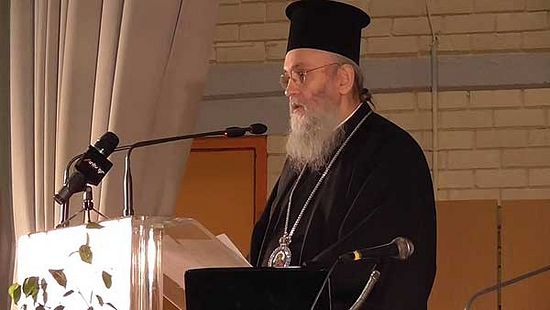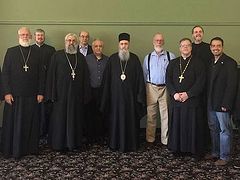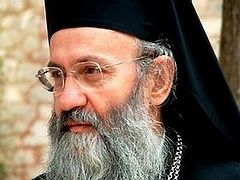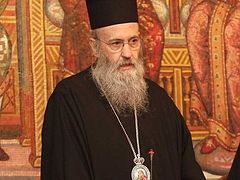Source: Impantokratoros
July 5, 2017
Recently it has been asserted repeatedly by some people that, although the Church is “One, Holy, Catholic and Apostolic” and it is the Orthodox Church, we can also make use of the term “Churches” for the non-Orthodox, and in this case it is a “technical term” (terminus technicus).
This view makes a particular impression, as it is not just written in articles but is also being put forward by bishops, even in official Synodical bodies, in order to support the decision of the “Great and Holy Council” of Crete that “the Orthodox Church accepts the historical name of other non-Orthodox Christian Churches and Confessions that are not in communion with her.”
I have a different view, of course, and I would like to express it in this article.
1. What is meant by a “technical term?”
A “technical term” (terminus technicus), according to G. Babiniotis’ Dictionary, is “a term that is used by a particular art, science or a professional specialism.”
If we look up the reference to special languages in the Portal for the Greek language , we reach the conclusion that a technical term (terminus technicus) is a term used in the context of technical language by academics of particular specializations, when they investigate matters concerning their specialty. Thus a technical term is either a term used to describe objects or concepts that do not have a name in current usage, or else it meets the need to describe with a more specific term, to exclude any ambiguity, objects which ordinary language (common vocabulary) already describes. So a technical term can be a newly created word or an existing word in everyday vocabulary with a more specific meaning, which differs to a greater or lesser extent from the meaning that it has in common usage.
In this specific case, with reference to the text of the Great Council, the expression ‘technical term’ means that these “Christian communities and confessions” are not recognized as Churches, but the word “Church” is used for these Christian groups as a convention, in order to facilitate understanding between us.
Starting from the definition of a technical term which we reached on the basis of the information we obtained from the Portal for the Greek language, we could make the following points about the use of the term “Church” as a technical term:
Technical terms are the result of agreement between experts. Their meaning is determined with absolute precision and clarity, and specialists in every field use them to ensure mutual understanding and to avoid ambiguity. However, from the moment that a word’s content is in doubt and provokes discussion, it is obvious that its use is not accurately defined and it is not the result of agreement, so it invalidates itself as a technical term.
Also, technical terms are recorded in specialist dictionaries of terminology and are fixed. They are not used casually and conventionally for the sake of agreement, in order to suit a particular situation. In the case of the Great Council, the use of the word “Church” for non-Orthodox confessions as well is proposed in order to promote agreement and meet a need for communication, in the knowledge that, in this specific instance, the word is being wrongly used with a different meaning from that which had been initially agreed. In this case, however, we are not dealing with a technical term, but with the selection of one of the word’s meanings.
It is true that if we consult dictionaries we see that they cite different meanings of the word. But this is exactly the purpose of dictionaries: to give the meanings of a word and to set out their use by quoting examples.
It is, however, a different matter within a text. The meaning of a word within a text, as we have been taught by linguistics and more specifically by pragmatics, must be defined by the “contextual setting—linguistic and extra-linguistic—of the statement.” The meaning is closely connected with the occasion, the conditions of place and time, the goal being pursued, and so on. Thus the meaning of the word “Church” in this specific ecclesiological text of the Great Council can be defined only in relation to other comparable dogmatic and ecclesiological texts and in relation to internal textual criteria – although, as will be pointed out below, the “technical term” is being used as a substantive term.
Lastly, we cannot link a “technical term” with apophaticism. To begin with, the concept of apophaticism relates only to God, as we will mention below, and we cannot suddenly produce an expanded interpretation of apophaticism for the term ‘Church’ merely because it serves our purpose. In any case, the concept of a “technical term” is the exact opposite of apophatic expression. Apophaticism is, above all, about the inability to give a definition or an exact name. On the contrary, a “technical term” is an attempt to give the most accurate definition possible of a concept.
In fact, the use of a “technical term” for other Christian Confessions is misleading and I will explain below the reasons that support my view.
... Read the rest at Impantokratoros.





